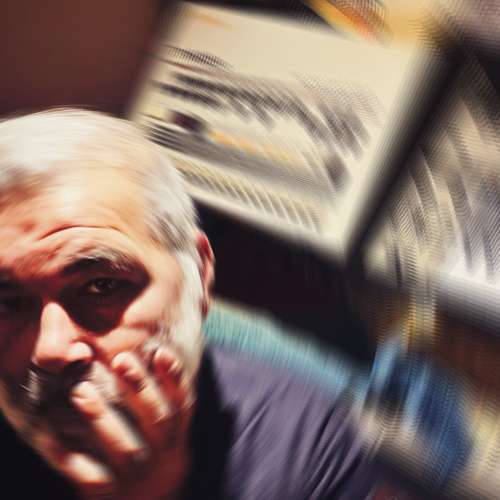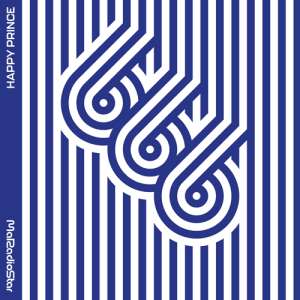
Pedro Resende, bassist of the cult band Tahiti 80, is venturing out solo with MaRadioStar, an electronic music project.
His debut album, entitled 666, will be released on May 23, 2025, on the Human Sounds label. This opus is the result of his sonic explorations with Roland machines (TR 909/808/606, TB303, SH101, Juno 60), which inspired the album's symbolic title. "I wanted to work with a limited palette of sounds, but rich in possibilities," says Pedro. "Playing with the machine numbers, I realized it was 666 (909-303+60). I had fun playing with this mystique, and I kept this equation for the entire album." »
Recorded at the Namabiru studio in Rouen, 666 was conceived as a live synthesizer, where the machines play simultaneously, interacting with each other, and creating varied atmospheres as well as unexpected sonic accidents. Once the best passages were selected, Pedro traveled to the United States, specifically to Fort Lauderdale, Florida, to mix in the studio of Andy Chase, the producer of Tahiti 80's first albums. Here again, the process was well-defined: "By pushing the bass and treble frequencies to the extreme, I sought to introduce disruptive elements into pop melodies," explains Pedro.
The album consists of ten tracks, including seven instrumentals and three vocals. For the latter, Pedro invited longtime friends from the French music scene. Julien Barbagallo, former member of Tahiti 80 and current drummer for Tame Impala, features on Monolythe, a hypnotic glitchy reggae track composed using a TR606 and a Juno 60. On Sheitana Nana, an offbeat rumba, French pop icon Cléa Vincent shares the mic with their mutual collaborator, Raphaël Léger. Finally, Maxwell Farrington, on vacation from the band Superhomard, croons and raps on Happy Prince, as if he'd escaped from the dancefloor of the Hacienda, the legendary Manchester club that once belonged to New Order.
Playing on contrasts, 666 is an album that oscillates between the organic and the mechanical, the dark and the luminous, the minimalist and the complex. It follows in the footsteps of Kraftwerk and their Man Machine concept, where humans control their electronic environment and not the other way around. In the background, there is also that pivotal moment in 1989, experienced by Pedro, when indie music mixed with Acid House, the time of the Second Summer of Love. We can also hear Boards of Canada in the way the synthetic sounds are treated and seem to come to life throughout the songs. Is this the work of the devil or another entity? Let's keep that secret! 666 is simply a daring record that highlights Pedro Resende's qualities as a producer, arranger and composer.



